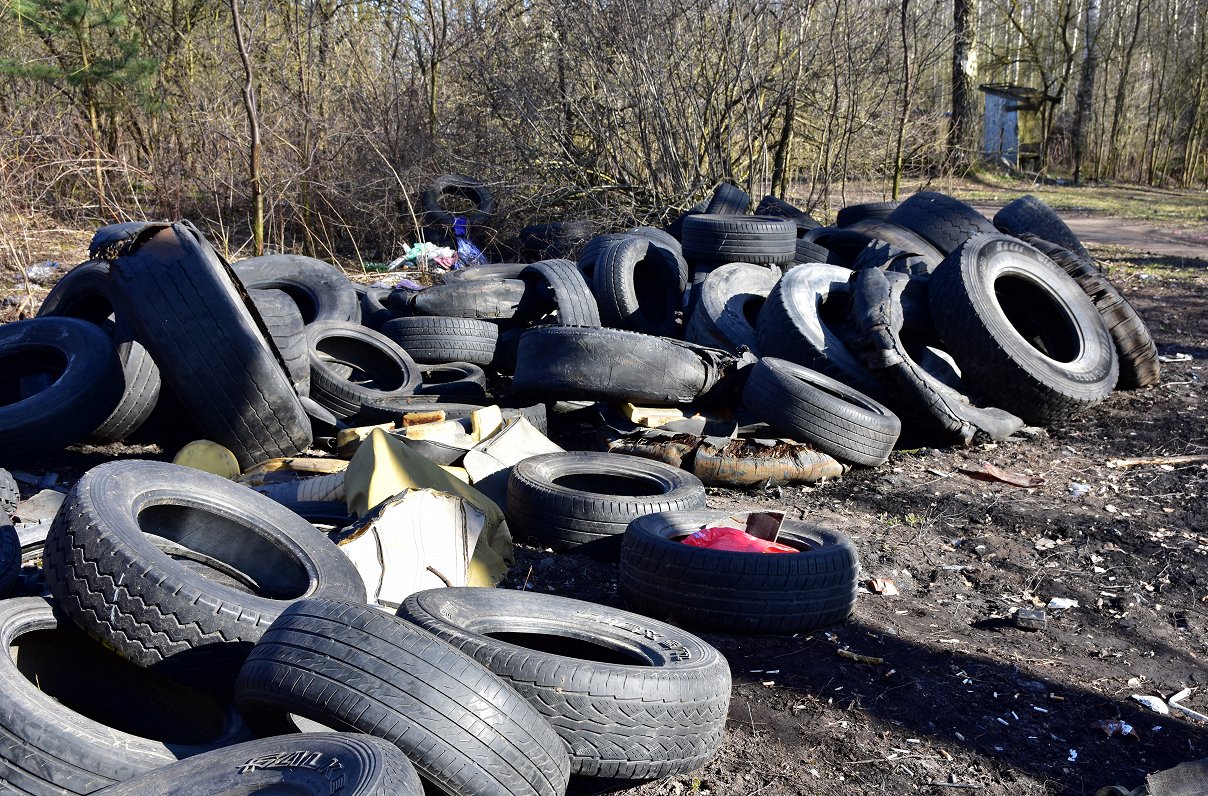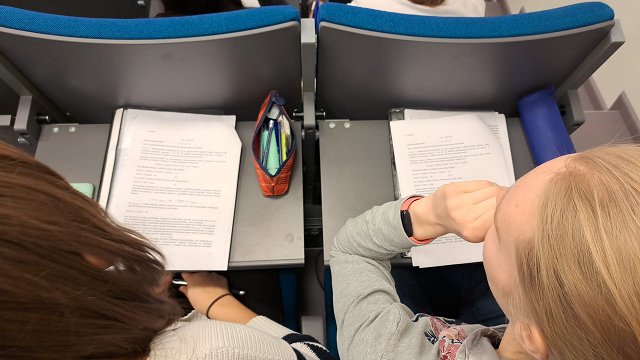This summer, an experimental route could be paved with asphalt concrete containing rubber granules from old tires.
RTU scientists have developed and tested new recipes for bitumen, the glue that contains splinters together in asphalt concrete. Road builders typically add specific polymers to bitumen so that road surface is more resilient to cracks and groves.
Scientists offer a polymer to be replaced or combined with rubber granules obtained by recycling worn tires. As studies show, rubber-modified bitumen is competitive in terms of quality.
“The rubber can be stretched and released, and it bounces back. Flexibility effect. We cannot stretch the bitumen, it will break,” said Viktors Haritonovs, lead researcher at the RTU Road and Bridge Department. "Consequently, by supplementing the bitumen with rubber, we allow the bitumen to become more flexible, more stretchy.”
If the polymer costs €4,000 a ton, then the rubber granules are about €120 to €150, Haritonovs said. “See what the difference is in terms of prices. Therefore, it is a competitive solution,” he added.
The use of rubber in the production of asphalt is nothing new: the method has been known for 70 years, but the technologies applied are evolving. Rubber has not been used yet in Latvia. One of the reasons was that there was no suitable raw material. Currently, there are already factories that can provide tire rubber of an appropriate quality.
In August, the recipe will be tested in practice, for a half-kilometre stretch of road. Currently, negotiations are ongoing with municipalities and parishes, where this could happen.





























